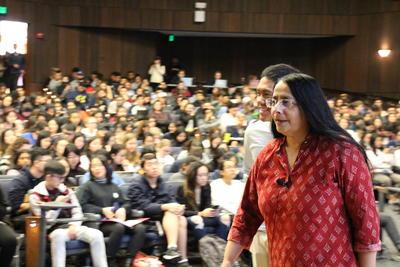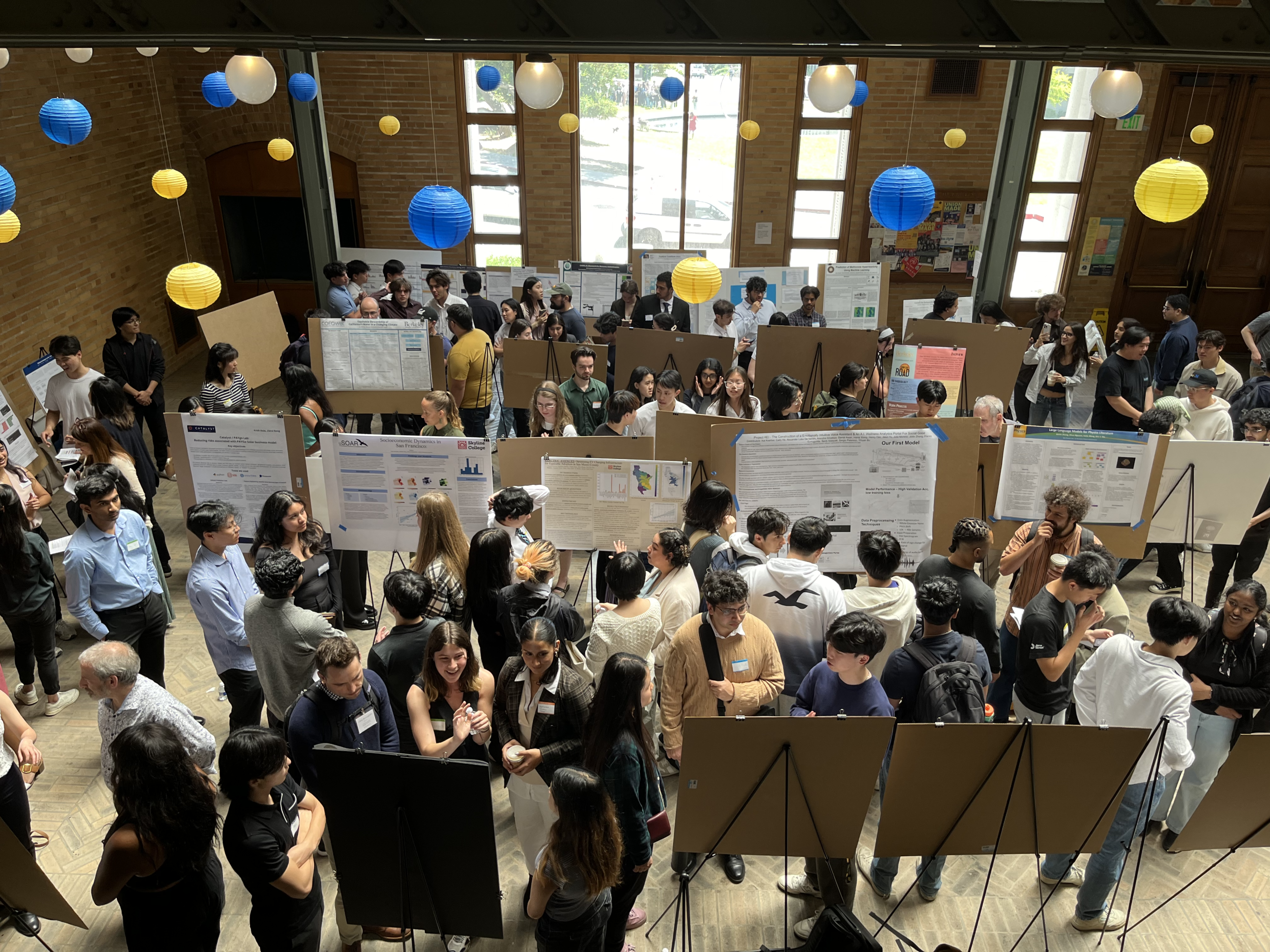
With the growing popularity of the Data Science major at UC Berkeley, the value of the technical skills its students will develop is often front of mind. But a group of passionate Data Science faculty has turned their attention to giving students tools to manage data ethically as they step into roles with human impacts.
Through a grant provided through the Mozilla Foundation’s Responsible Computing Challenge, Assistant Teaching Professor Lisa Yan led the launch of Data 375, a pedagogy course which trains undergraduate teachers’ assistants (TAs) to infuse human contexts and ethics (HCE) into their teaching.
Cathryn Carson, a UC Berkeley professor with roots in the History Department who now teaches and guides the role of HCE in data science coursework, highlights the ethical responsibility inherent in wielding data to influence human lives. With so much data being generated about people, she emphasizes the importance of equipping students to make decisions that align with their values as they encounter moral questions and challenges in the field.
Abby O’Neill, a student in the inaugural run of Data 375 this past spring semester, saw these principles in action during her internship experiences. “In industry, there’s this concept that data outputs decisions, but really data goes to a human and the human outputs the decision. So when you teach data science, it’s not only about the technical skills, you’re also empowering students to realize their decisions are what creates impact.”
Focusing on TA training in Data 375 is a strategic move. Ari Edmundson, a faculty member instrumental in developing the pedagogy for the major’s primary HCE course, underscores that in order to normalize HCE as a core component of UC Berkeley’s curriculum, its TAs must be comfortable teaching material through that lens. Data 375 guides students to reflect on ways to introduce people-centered examples that resonate with a diverse student body.
In addition to the societal implications, the course’s strategies support retention of students from backgrounds underrepresented in the field. By ensuring that examples and projects resonate with diverse experiences in foundational courses in the major, the TAs trained in Data 375 are able to foster a sense of belonging crucial for student engagement.
Honing their teaching skills has impacted the TAs in Data 375 beyond the classroom. Brandon Su, a rising junior, recalls that the interviewers for his current software engineering internship were particularly excited about his experience. “When you teach Data 8 [the Data Science foundations course], you’re explaining things to people with a wide range of backgrounds, from those really familiar with computer science to those who’ve never written a line of code. In my internship, I have to give updates to people who wrote the code themselves and to people who’ve never looked at it, so having that flexibility in meeting people where they’re at is really useful.”
O’Neill agrees, emphasizing the importance of human skills in a STEM degree. “In a Computer Science or Data Science degree, you’re learning all these technical skills and getting tested on whether you understand and can use them. But the way you get ‘graded’ in industry has a lot to do with communication and your ability to break down technical topics.”
The mission of the Mozilla’s Responsible Computing Challenge is to “fuel an industry-wide culture shift” that empowers the next generation entering the technology space to wield the power of data responsibly. As Berkeley leads the charge in ethical data practices, Data 375 sets the bar for what data science education should be: technologically rigorous and socially conscious.


